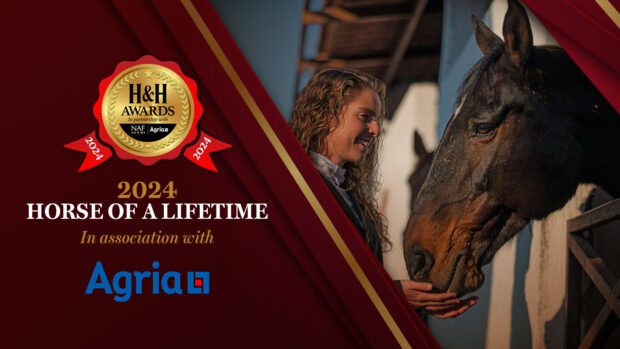If you compete regularly, you and your horse probably spend a lot of time in a horsebox or temporary stable. How you feed and water your horse over the course of the time spent travelling and at the competition will affect its performance and how fast it recovers.
One of the biggest challenges is keeping the horse hydrated, although what you do will depend on the horse, how well it travels and how it copes with the excitement of competing.
The easiest horses to manage are those who drink happily when offered water during the journey and do not fret at or after the competition. Others can be more of a challenge.
It’s never bad to offer water to a horse. Of course, there is a risk of colic if your horse takes a long drink of icy water, but you can protect against this by taking the chill off the water first.
Ask any two people in the horsebox park whether you should offer the horse hay while it’s at a competition and you’ll get different answers — some people worry that feeding forage will make the horse too “gutty” or heavy.
There is always going to be a balance between inner health and weight. Horses need some fibre for their digestive system to work at its best, but one kilo of hay can bind up to three times its weight in water as it passes through the hindgut.
Feeding some hay or haylage is a good thing for many reasons: it keeps a horse occupied and may help guard against gastric ulcers; the water it binds is useful against dehydration, and keeping to the daily routine means there’s one less dietary change on competition days, where the normal routine is affected by class times, evening competitions or a late return home.
The amount you feed and when you feed will depend on the horse and the time of the class. For instance, if you were travelling 3hr to a competition, it would be beneficial to offer a slice of hay or a small haynet of haylage as you leave.
Top tips
- Don’t offer large concentrate meals within 3hr of exercise. After eating, blood is redirected from the muscles to the digestive system
- For travelling, dusty forages should be soaked. Haylage that has dried out over the course of the day should be re-soaked
- For poor drinkers, feed small meals of well-soaked sugar beet pulp that are more water than beet to maintain fluid intake
- Establish a feeding and watering routine for competition days
|
||
 |
||


 Get up to 19 issues FREE
Get up to 19 issues FREE TO SUBSCRIBE
TO SUBSCRIBE 



